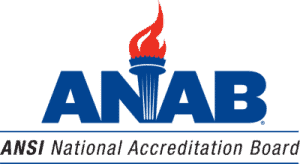Accreditation: Adding Value to Supply Chains

When a supply chain encompasses multiple countries and sites, there are challenges in terms of quality, compliance with regulations and safety standards, and environmental and social responsibility.
Increasingly, product supply chains are global and complex, and any disruption in the supply chain can affect profitability, reputation, and customer loyalty.
The theme of World Accreditation Day 2019, which is celebrated annually on June 9, is “Accreditation: Adding Value to Supply Chains.” Here are some issues around supply chains that have been identified in connection with World Accreditation Day:
- While businesses have manufactured products from goods sourced from around the world for many years, supply chains are increasingly complex in terms of the speed, scale, depth, and breadth of global interactions.
- Given the global nature of supply chains and retail markets, businesses often operate in multiple locations with varied regulatory requirements.
- Credible and trustworthy information is required to determine the quality, authenticity, and traceability of raw materials and components.
- Increased innovation grows and reduced product lifecycles make markets more unpredictable and exert greater pressure on supply chains.
- Businesses find it increasingly necessary to manage risk and disruption from breaches in data security and other system failures.
- Along with financial stability, corporate social responsibility and ethical practices are important considerations in selecting sustainable suppliers.
These and other issues underlie the import role of accreditation in the supply chain. Accreditation determines the technical competence, integrity, and impartiality of organizations that provide services such as testing, calibration, certification, and inspection.
With its basis on international standards, accreditation adds value to supply chains as businesses seek to maximize value and satisfy contractual terms, while maintaining confidence that products and services meet technical specifications and are safe.
Eighty percent of trade involves elements of testing, calibration, inspection, and certification activities. Accreditation is the independent evaluation of the providers of these services against recognized standards to ensure their impartiality, competence, and consistency.
Accreditation, therefore, plays an important role in reducing the costs of trade and doing business, enhancing technology transfer, and increasing investment. It also enables businesses to integrate into global supply chains, as they can demonstrate product quality through a common technical language needed to establish trust between business partners. A World Trade Organization Economic Research and Statistics Division report says the inappropriate use of conformity assessment accounts for 10% of specific trade concerns. Accreditation provides an opportunity to address this issue.
For further reading, we discuss how accreditation delivers confidence in the supply chain in our next post.






